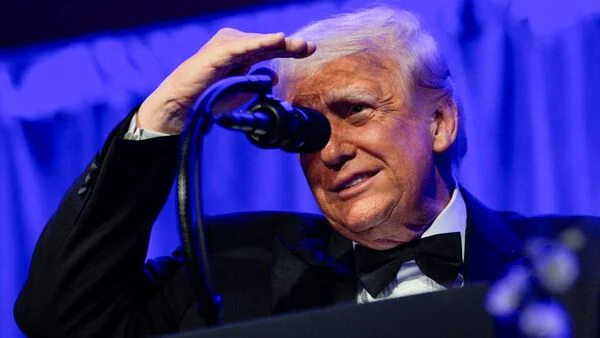
H-1B Visa To See Tougher Reforms? Trump Administration Pushes For 'Stricter Rules, And Cap Limits'
The suggested reforms include revising eligibility criteria for cap exemptions, increasing scrutiny of employers with past violations, and tightening oversight of third-party job placements, according to Newsweek.
1. Cap exemption review: The Department of Homeland Security plans to reassess and potentially limit the types of employers and roles that qualify for exemptions from the annual H-1B visa cap, a move that could impact nonprofits, universities, and healthcare institutions currently benefiting from these waivers, Newsweek reported.
Also Read: Why is UK not issuing more visas for highly skilled Indians despite FTA? PM Keir Starmer answers
2. Third-party worksite oversight: Firms that deploy H-1B employees to third-party worksites, a standard model in tech and consulting, will face increased regulatory scrutiny, the report stated.
3. Tighter checks on past violators: Companies with a history of violating wage or labour condition requirements under the H-1B program will be subjected to stricter monitoring, Newsweek noted.
“These changes are intended to improve the integrity of the H-1B nonimmigrant program and better protect U.S. workers' wages and working conditions,” a paragraph from the rule reads.
H-1B visa programThe H-1B visa program, established by the US Congress to attract high-skilled foreign workers for jobs that are hard to fill domestically, is facing major reforms under the Trump administration.
Also Read: US rejects visa plea of Indian student with Columbia University scholarship, says no 'strong ties' to home country
While the program is widely used by tech firms, about a third of H-1B visa holders are employed in critical sectors like healthcare, education, religious services, and academia, including nurses, teachers, physicians, scholars, priests, and pastors, according to a recent lawsuit challenging the reform .
Reuters reported, citing critics, that the program has been misused as a cost-saving pipeline for overseas workers willing to work for salaries as low as $60,000, significantly below the six-figure pay often commanded by U.S. tech workers.
Traditionally, H-1B visas have been allocated through a lottery system.
In the latest cycle, Seattle-based Amazon emerged as the top recipient, securing over 10,000 visas, followed by major players like Tata Consultancy Services, Microsoft, Apple, and Google. California remains the state with the highest number of H-1B workers, reflecting the program's central role in the U.S. tech ecosystem, Reuters reported.
Also Read: IT, pharma, FMCG market-cap share hits 14-year low amid Trump tariffs, H1B visa fee hike; Cyclicals' profit pool expand
If implemented, the new rules could significantly disrupt hiring practices in sectors dependent on foreign talent, particularly tech startups unable to bear the high visa costs, while leaving large firms like Nvidia, which has pledged to continue sponsoring H-1B applicants and cover related expenses, relatively unaffected.
(With inputs from Reuters, Newsweek)
Legal Disclaimer:
MENAFN provides the
information “as is” without warranty of any kind. We do not accept
any responsibility or liability for the accuracy, content, images,
videos, licenses, completeness, legality, or reliability of the information
contained in this article. If you have any complaints or copyright
issues related to this article, kindly contact the provider above.
Most popular stories
Market Research

- Crypto Market Update: Pepeto Advances Presale With Staking Rewards And Live Exchange Demo
- Kucoin Appeals FINTRAC Decision, Reaffirms Commitment To Compliance
- Cregis And Sumsub Host Web3 Compliance And Trust Summit In Singapore
- Chartis Research And Metrika Release Comprehensive Framework For Managing Digital Asset Risk
- Nodepay Launches Crypto's Largest Prediction Intelligence Platform
- Schoenherr Opens London Liaison Office As Gateway To Central Eastern Europe




















Comments
No comment